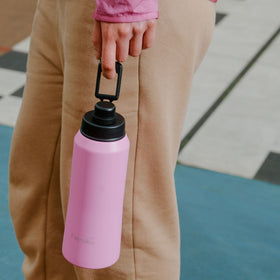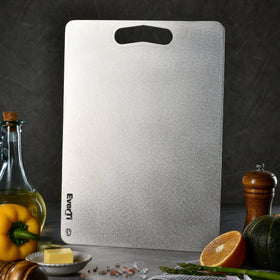
The Complete Beginners Guide to Baby Colic
Colic has no identifiable cause. It's not a medical syndrome, digestive malfunction or an illness. And yet according to Dr Luisa Dilner in the Guardian, it's estimated that between 5-20% of babies are affected by colic.

What is colic?
Colic is an unexplained, regular cycle of crying that extends for bouts of up to 3 hours at a time, usually occurring in the afternoon or evening. It appears as though your baby has abdominal pain, which, combined with the fact that it generally occurs between the ages of two weeks and three months once the digestive system has had time to mature, leads us to believe that colic is associated with the development of the digestive tract. While colic isn't harmful, it can be incredibly stressful for both baby and parents.
How is colic diagnosed?
The crying patterns are generally the most prominent symptom when it comes to identifying colic, though it's important to consult your doctor to eliminate any other conditions mistaken for colic. You may also notice that your baby is red in the face, grimacing, pulling up their legs or has tummy rumblings, and cannot be comforted or consoled after any of the usual reasons children cry such as hunger, tiredness, coldness, a full nappy or rocking. If your baby is showing any other symptoms, like floppiness, pallor, or a temperature, it's very important that you seek help from your medical practitioner in case it's not colic.
How can you help your baby?
Although colic usually stops between 3 and 6 months, often very suddenly, hours and hours of crying every day sure does take a lot out of your baby (and you, too!). You'll want to try anything you can to give your baby relief from colic - there's no greater helplessness than being unable to comfort your baby.

A process of elimination
Instead of thinking about what you can give your baby, first think about what you can take away. Eliminating triggers can often be a much easier solution than adding complications to their already fragile digestive systems. If you're breastfeeding, look closely at your diet. Are you consuming any aggravating foods such as cabbage, cauliflower, broccoli, onions, curry, legumes, cow's milk, or chocolate? How about any drugs including caffeine or other substances that your baby's body isn't able to get rid of? It's worth trying an elimination diet yourself to ensure that your baby isn't reacting to anything that you're eating. If you're bottle feeding, check the ingredients of their formula or milk. Some babies have reactions to cow's milk, so trying a baby formula that isn't based on cow's milk could be worth a try. Check to see that your baby isn't sucking in too much air whilst they're feeding. You may even be overfeeding your baby. Feed only little amounts at a time, every 2 to 2.5 hours. Is your baby overstimulated by bright lights or movement? Soften the lighting and put your baby down for a while, perhaps in a swaddle, to help soothe. You may in fact be trying too hard to bounce and burp your baby.
Natural Remedies
Pick up your baby when they start crying. It's comforting for them, and you can rock or pat your baby easily. You could even try putting your baby in a sling or carrier so that they're close to you. The Victorian Government healthcare site, Better Health, suggests trying simple solutions like white noise, soft music or a ride in the car. A warm towel on their tummy can help with gas. Baby massage using appropriate oils can help, too. Probiotics can also be beneficial as a natural colic remedy. If you're breastfeeding, remember that you're passing on immune boosting beneficial bacteria. But could you be boosting this action by increasing your own probiotic intake? Look at foods such as yogurt, make your own sauerkraut or kimchi, and drinks such as kefir and kombucha.
Gripe Water
Gripe water is a liquid given to infants to assist with gastrointestinal discomfort. Ingredients can vary, so be sure to look for natural ingredients and avoid buying products that contain sodium bicarbonate that can upset their pH balance, vegetable carbon that may cause constipation or unnecessary sugars. Breastfeeding mothers can make their own tea using chamomile, dill or fennel, or try Weleda's nursing tea. It helps soothe digestion for mother and baby.
If you're not breastfeeding, it can be a little harder to work out the dosages so that baby doesn't ingest too much. However you've also got the option of pre-formulated products that take the guess work out such as Weleda's natural baby colic powder.
And finally... always attend to your crying baby. It's important to let them know that you're there for them, even if you can't alleviate their pain right away. Having said that, you need to take care of yourself as well. It's very stressful to deal with a non-stop crying baby for 3 hours. It's okay to put your baby down somewhere safe, like the cot, and give yourself ten minutes with headphones on and music up to give yourself a break. Ask your partner, or parents, or your best friend to help, and if you can, remove yourself from the sound of crying for a while. Try to eat something, or have a calming cup of tea and get your head together. When your baby is in the middle of a bout of colic, it seems like it will never end. But it will. Like everything, 'This too, shall pass'.










